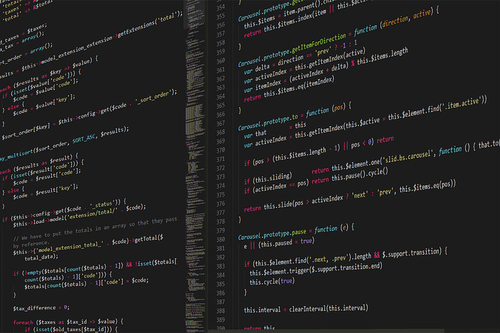- --> Login or Sign Up


Shop by Author
- Sabrineh Ardalan
- Robert Bordone
- Robert Clark
- John Coates
- Susan Crawford
- Alonzo Emery
- Heidi Gardner
- Philip B. Heymann
- Howell E. Jackson
- Wendy Jacobs
- Adriaan Lanni
- Jeremy McClane
- Naz Modirzadeh
- Catherine Mondell
- Ashish Nanda
- Charles R. Nesson
- John Palfrey
- Bruce Patton
- Todd D. Rakoff
- Lisa Rohrer
- Jeswald W. Salacuse
- James Sebenius
- Joseph William Singer
- Holger Spamann
- Carol Steiker
- Guhan Subramanian
- Lawrence Susskind
- David B. Wilkins
- Jonathan Zittrain
Shop by Brand
- Howell Jackson
- Ashish Nanda and Nicholas Semi Haas
Chad M. Carr
- John Coates, Clayton Rose, and David Lane
- Ashish Nanda and Lauren Prusiner
- Ashish Nanda and Lisa Rohrer
- Ashish Nanda and Monet Brewerton
- View all Brands
- $0.00 - $1.00
- $1.00 - $2.00
- $2.00 - $4.00
- $4.00 - $5.00
- $5.00 - $6.00
Criminal Law
- Published Old-New
- Published New-Old

The Case of the Smoking Tenant
Joseph William Singer and Esme Caramello

Prosecutorial Discretion in Charging and Plea Bargaining: The Aaron Swartz Case (B)
Elizabeth Moroney, under the supervision of Adriaan Lanni and Carol Steiker

Prosecutorial Discretion in Charging and Plea Bargaining: The Aaron Swartz Case (A)
Elizabeth Moroney, under supervision of Adriaan Lanni and Carol Steiker

The Case of Cross-Deputization
Joseph William Singer, Jeremy McClane, and Nicholas Price

Balloon Boy
Todd D. Rakoff, Alex Whiting, and Kyle Virgien


Cyrus Vance and Dominique Strauss-Kahn: Dilemmas in a High-Profile Prosecution (B) and (C)
Philip Heymann, Lisa Brem, Emily Balter, and Michael Noveck

Cyrus Vance and Dominique Strauss-Kahn: Dilemmas in a High-Profile Prosecution (A)

The WikiLeaks Incident: Background, Details, and Resources
Alan Ezekiel, under supervision of John Palfrey and Jonathan Zittrain

The Case of the Federal Defender's Advice
David Abrams

The Final Furlough

The Case of the Section 8 Housing Vouchers
Todd D. Rakoff, Paul Radvany, and Rebecca Goldberg

(03) 9670 5111
CRIMINAL LAW CASE STUDIES

Pleading Not Guilty in a Criminal Matter

Pleading Guilty in a Criminal Matter
Understanding the Victorian Confiscation Act

A Guide to Appeals against conviction & sentence

Dealing with allegations of sexual assault

Understanding the sex offender registration act

Understanding bail laws in victoria

Appearing before a royal commission

Dealing with ASIC Investigations

Appearing before IBAC

Understanding Family Violence Intervention Orders

Understanding Road Safety Act Offences

Victorian Courts Mapping The Court Process

Victorian Prisons Information Booklet

在刑事案件中请求认罪 刑事案件中做无罪申辩
REAL CASES. REAL RESULTS.

All cases were handled by our expert criminal lawyers and range from contested matters, appeals, bail applications, and pleas of guilty for both indictable and summary offences. They were heard in different County Courts, Magistrates’ Courts, and Children’s Courts throughout the state of Victoria, including the Supreme Court and Court of Appeal.
All of the criminal law case studies in this site are anonymised. They are provided to give you an idea of the scope of work that we cover, as well as information on some penalties imposed for different criminal cases.
Every case is different and turns on the different circumstances of the person being sentenced.

- Sex Offences
- Family Violence
- Intervention Orders
- Breaching Intervention Orders
- Drug Offences
- Assault & Violence
- Theft & Dishonesty
Doogue + George © 2024
- About this site
- Privacy Policy
- Terms of Use
- Accessibility
- HTML Sitemap
- How We Can Help You
- Criminal Defence
- Find a Lawyer
- Ask a Lawyer
- Research the Law
- Law Schools
- Laws & Regs
- Newsletters
- Justia Connect
- Pro Membership
- Basic Membership
- Justia Lawyer Directory
- Platinum Placements
- Gold Placements
- Justia Elevate
- Justia Amplify
- PPC Management
- Google Business Profile
- Social Media
- Justia Onward Blog
Criminal Trials & Prosecutions Supreme Court Cases
A defendant in a criminal prosecution faces the potential loss of their liberty. In addition to basic due process protections, defendants have certain rights under the Sixth Amendment to the U.S. Constitution, including:
- Speedy and public trial
- Trial by an impartial jury
- Assistance of counsel
- Confrontation of opposing witnesses
The right to confront opposing witnesses includes the right to cross-examine those witnesses. Under Crawford v. Washington , the modern standard for determining whether confrontation is required hinges on whether a statement is testimonial. Decisions following Crawford have sought to define testimonial statements. Confrontation Clause questions also may involve the meaning of “confrontation,” such as whether a confrontation must be face to face.
Beyond the Confrontation Clause, the Supreme Court has shaped constitutional rights related to lawyers and juries in criminal cases. For example, a defendant is entitled to the assistance of counsel regardless of whether they can afford a lawyer. This right even attaches before the start of a trial. The Supreme Court has interpreted the Sixth Amendment to require “effective” assistance of counsel. Meanwhile, a jury must be selected from a representative cross-section of the community. Jury pools and juries must be formed in a non-discriminatory way.
Below is a selection of Supreme Court cases involving criminal trials and prosecutions, arranged from newest to oldest.
Author: Elena Kagan
When an expert in a criminal trial conveys an absent analyst's statements in support of their opinion, and the statements provide that support only if true, the statements come into evidence for their truth. If those statements are also testimonial, the Confrontation Clause will bar their admission.
Author: Clarence Thomas
The Confrontation Clause does not bar the admission of a non-testifying co-defendant's confession when the confession has been modified to avoid directly identifying the non-confessing co-defendant, and the court offers a limiting instruction that jurors may consider the confession only with respect to the confessing co-defendant.
Author: Neil Gorsuch
The Sixth Amendment right to a jury trial, incorporated against the states by the Fourteenth Amendment, requires a unanimous verdict to convict a defendant of a serious offense.
Author: Ruth Bader Ginsburg
The Sixth Amendment's speedy trial guarantee does not apply once a defendant has been found guilty at trial or has pleaded guilty to criminal charges.
Author: Samuel A. Alito, Jr.
The Confrontation Clause does not necessarily bar the introduction of all out-of-court statements that support the prosecution's case. Instead, a court asks whether a statement was given with the primary purpose of creating an out-of-court substitute for trial testimony.
Out-of-court statements that are related by an expert solely for the purpose of explaining the assumptions on which that opinion rests are not offered for their truth and thus fall outside the scope of the Confrontation Clause.
If an out-of-court statement is testimonial in nature, it may not be introduced against the accused at trial unless the witness who made the statement is unavailable, and the accused has had a prior opportunity to confront that witness.
Author: Sonia Sotomayor
An identification and description of a shooter and the location of a shooting were not testimonial statements for Confrontation Clause purposes because they had a primary purpose to enable police assistance to meet an ongoing emergency.
Author: Antonin Scalia
Affidavits reporting the results of forensic analysis are testimonial, rendering the affiants “witnesses” subject to the defendant's right of confrontation under the Sixth Amendment.
Author: David Souter
A criminal defendant's initial appearance before a magistrate judge, where they learn the charge against them and their liberty is subject to restriction, marks the initiation of adversary judicial proceedings that trigger the attachment of the Sixth Amendment right to counsel.
Author: Stephen Breyer
The Constitution does not forbid states from insisting on representation by counsel for people competent enough to stand trial but who suffer from severe mental illness to the point that they are not competent to conduct trial proceedings by themselves.
A trial court's erroneous deprivation of a criminal defendant's choice of counsel entitles them to reversal of their conviction.
Statements are testimonial for Confrontation Clause purposes when the circumstances objectively indicate that the primary purpose of the interrogation is to establish or prove past events potentially relevant to later criminal prosecution.
When testimonial statements are at issue, the only indicium of reliability sufficient to satisfy constitutional demands is confrontation.
Author: Sandra Day O’Connor
The right to confront accusatory witnesses may be satisfied without a physical, face-to-face confrontation at trial only when the denial of such a confrontation is necessary to further an important public policy, and only when the testimony's reliability is otherwise assured.
A screen placed between the defendant and the complaining witnesses, which blocked the defendant from their sight, violated the defendant's Sixth Amendment right to confront the witnesses against him.
The Confrontation Clause guarantees an opportunity for effective cross-examination but not successful cross-examination. It is satisfied when the defendant has a full and fair opportunity to bring out the witness' bad memory and other facts tending to discredit their testimony.
The Confrontation Clause is not violated by the admission of a non-testifying co-defendant's confession with a proper limiting instruction when the confession is redacted to eliminate not only the defendant's name but also any reference to their existence.
Author: Lewis Powell
When the state obtains incriminating statements from the accused after the right to counsel has attached, a defendant does not make out a violation of the right to counsel simply by showing that an informant reported their incriminating statements to the police. Instead, the defendant must demonstrate that the police and their informant took some action beyond merely listening that was designed deliberately to elicit incriminating remarks.
While a defendant has no right to a jury composed in whole or in part of persons of their own race, the Equal Protection Clause guarantees the defendant that the state will not exclude members of their race from the jury venire on account of race, or on the false assumption that members of their race as a group are not qualified to serve as jurors. In addition, the Equal Protection Clause forbids the prosecutor to challenge potential jurors solely on account of their race or on the assumption that black jurors as a group will be unable impartially to consider the State's case against a black defendant.
Author: William Rehnquist
A criminal defendant states a violation of the Confrontation Clause by showing that they were prohibited from engaging in otherwise appropriate cross-examination designed to show a prototypical form of bias on the part of the witness. However, the constitutionally improper denial of a defendant's opportunity to impeach a witness for bias is subject to harmless error analysis. Whether an error is harmless depends on factors such as the importance of the witness' testimony, whether the testimony was cumulative, the presence or absence of evidence corroborating or contradicting the testimony on material points, the extent of cross-examination otherwise permitted, and the overall strength of the prosecution's case.
The Sixth Amendment becomes applicable only when the government's role shifts from investigation to accusation through the initiation of adversary judicial proceedings. Also, Miranda should not be extended to require the reversal of a conviction if the police are less than forthright in their dealings with an attorney or if they fail to tell a suspect of an attorney's unilateral efforts to contact them.
Author: Warren Burger
The Sixth Amendment right of a criminal defendant to assistance of counsel is not violated when an attorney refuses to cooperate with the defendant in presenting perjured testimony at their trial.
Author: William Brennan
The right to assistance of counsel attaches at critical stages in the criminal justice process, at which the results might well settle the accused's fate and reduce the trial itself to a formality.
The Sixth Amendment right to counsel is the right to the effective assistance of counsel, and the benchmark for judging any claim of ineffectiveness must be whether counsel's conduct so undermined the proper functioning of the adversarial process that the trial cannot be relied on as having produced a just result. A convicted defendant's claim that counsel's assistance was so defective as to require reversal of a conviction or setting aside of a death sentence requires that the defendant show that counsel's performance was deficient and that the deficient performance prejudiced the defense so as to deprive the defendant of a fair trial.
By intentionally creating a situation likely to induce the accused to make incriminating statements without the assistance of counsel, the government violated his Sixth Amendment right to counsel, and the resulting statements should not have been admitted at trial.
The Sixth and Fourteenth Amendments require that no indigent criminal defendant be sentenced to a term of imprisonment unless the state has provided them with the right to assistance of appointed counsel in their defense. However, these Amendments do not require a state trial court to appoint counsel for a criminal defendant who is charged with a statutory offense for which imprisonment on conviction is authorized but not imposed.
Author: Potter Stewart
The Sixth Amendment right to counsel means at least that a person is entitled to a lawyer's help at or after the time that judicial proceedings have been initiated against them. To show a waiver of the right to the assistance of counsel, the state must prove an intentional relinquishment or abandonment of a known right or privilege.
The Sixth Amendment guarantees that a defendant in a criminal trial has an independent constitutional right of self-representation. They may defend themselves without counsel when they voluntarily and intelligently elect to do so.
Author: Byron White
The requirement that a jury be selected from a representative cross-section of the community is fundamental to the jury trial guaranteed by the Sixth Amendment. This requirement is violated by the systematic exclusion of women from jury panels.
The right of confrontation is paramount to a state policy of protecting juvenile offenders, and any temporary embarrassment to a witness by the disclosure of their juvenile court record and probation status is outweighed by the defendant's right effectively to cross-examine a witness.
Author: Harry Blackmun
The Sixth Amendment does not grant an accused the right to have counsel present when the government conducts a post-indictment photographic display, containing a picture of the accused, for the purpose of allowing a witness to attempt an identification of the offender.
A defendant's constitutional right to a speedy trial cannot be established by any inflexible rule. It must be determined on an ad hoc balancing basis in which the conduct of the prosecution and the defendant are weighed. The court should assess factors such as the length of the delay, the reason for the delay, the defendant's assertion of their right, and prejudice to the defendant.
Author: William O. Douglas
The right of an indigent defendant in a criminal trial to the assistance of counsel is not governed by the classification of the offense or by whether a jury trial is required.
A showup after arrest, but before the initiation of any adversary criminal proceeding, is not a criminal prosecution at which the accused as a matter of absolute right is entitled to counsel.
The Confrontation Clause of the Sixth Amendment is not violated by admitting a declarant's out-of-court statements as long as they are testifying as a witness at trial and are subject to full cross-examination.
The conviction of a defendant at a joint trial should be set aside on Confrontation Clause grounds when a co-defendant's confession inculpating the defendant was introduced as evidence against the co-defendant during the trial, even though the jury was instructed that the confession should be disregarded in determining the defendant's guilt or innocence.
The Fourteenth Amendment guarantees a right to a jury trial in all criminal cases that would come within the Sixth Amendment guarantee of trial by jury if they were tried in a federal court. Crimes carrying possible penalties up to six months do not require a jury trial if they otherwise qualify as petty offenses.
The Sixth Amendment guarantees an accused the right to counsel at any critical confrontation by the prosecution at pre-trial proceedings at which the results might well determine their fate, and at which the absence of counsel might derogate from their right to a fair trial. A post-indictment lineup is a critical prosecutive stage at which an accused is entitled to the aid of counsel.
Author: Hugo Black
The right granted to a defendant by the Sixth Amendment to confront the witnesses against them, which includes the right of cross-examination, is a fundamental right essential to a fair trial and is made obligatory on the states by the Fourteenth Amendment.
Author: Arthur Goldberg
When a police investigation is no longer a general inquiry into an unsolved crime but has begun to focus on a particular suspect in police custody who has been refused an opportunity to consult with their counsel and has not been warned of their constitutional right to keep silent, the accused has been denied the assistance of counsel, and no statement extracted by the police during the interrogation may be used against them at trial.
Incriminating statements deliberately elicited by federal agents from a defendant in the absence of their attorney deprived them of their right to counsel under the Sixth Amendment and could not be used as evidence against them at their trial.
Suppression by the prosecution of evidence favorable to an accused who has requested it violates due process when the evidence is material either to guilt or to punishment, irrespective of the good faith or bad faith of the prosecution.
The right of an indigent defendant in a criminal trial to have the assistance of counsel is a fundamental right essential to a fair trial.
Author: Felix Frankfurter
Involuntary verbal confessions are inadmissible in a criminal trial under the Due Process Clause even though statements contained in them may be independently established as true. Coerced confessions offend the community's sense of fair play and decency.
Author: Owen Josephus Roberts
Under the circumstances, the refusal of a state court to appoint counsel to represent an indigent defendant at a trial in which he was convicted of robbery did not deny him due process of law in violation of the Fourteenth Amendment. (This decision was overruled by Gideon v. Wainwright below.)
Author: Frank Murphy
The right to have the assistance of counsel is too fundamental to be made to depend upon nice calculations by courts of the degree of prejudice arising from its denial.
The right to assistance of counsel may be waived, but the waiver must be intelligent. Whether there was a waiver must depend on the particular facts and circumstances, including the background, experience, and conduct of the accused.
Author: George Sutherland
The right of the accused, at least in a capital case, to have the aid of counsel for their defense is one of the fundamental rights guaranteed by the Due Process Clause of the Fourteenth Amendment. This includes the right to have sufficient time to advise with counsel and prepare a defense.
Author: Oliver Wendell Holmes, Jr.
A trial for murder in a state court in which the accused are hurried to conviction under mob domination without regard for their rights is without due process and void.
Author: William Howard Taft
The provisions of the Constitution guaranteeing a jury trial in all criminal prosecutions do not apply to a territory belonging to the U.S. that has not been incorporated into the Union, such as Puerto Rico.
Author: William Strong
When a state law secures to every white man the right of trial by a jury selected from and without discrimination against his race, and at the same time permits or requires such discrimination against the colored man because of his race, the latter is not equally protected by law with the former.
- Death Penalty & Criminal Sentencing
- Due Process
- Miranda Rights
- Search & Seizure
- Constitutional Law
- Criminal Law
Get free summaries of new U.S. Supreme Court opinions delivered to your inbox!
- Bankruptcy Lawyers
- Business Lawyers
- Criminal Lawyers
- Employment Lawyers
- Estate Planning Lawyers
- Family Lawyers
- Personal Injury Lawyers
- Estate Planning
- Personal Injury
- Business Formation
- Business Operations
- Intellectual Property
- International Trade
- Real Estate
- Financial Aid
- Course Outlines
- Law Journals
- US Constitution
- Regulations
- Supreme Court
- Circuit Courts
- District Courts
- Dockets & Filings
- State Constitutions
- State Codes
- State Case Law
- Legal Blogs
- Business Forms
- Product Recalls
- Justia Connect Membership
- Justia Premium Placements
- Justia Elevate (SEO, Websites)
- Justia Amplify (PPC, GBP)
- Testimonials

IMAGES
VIDEO